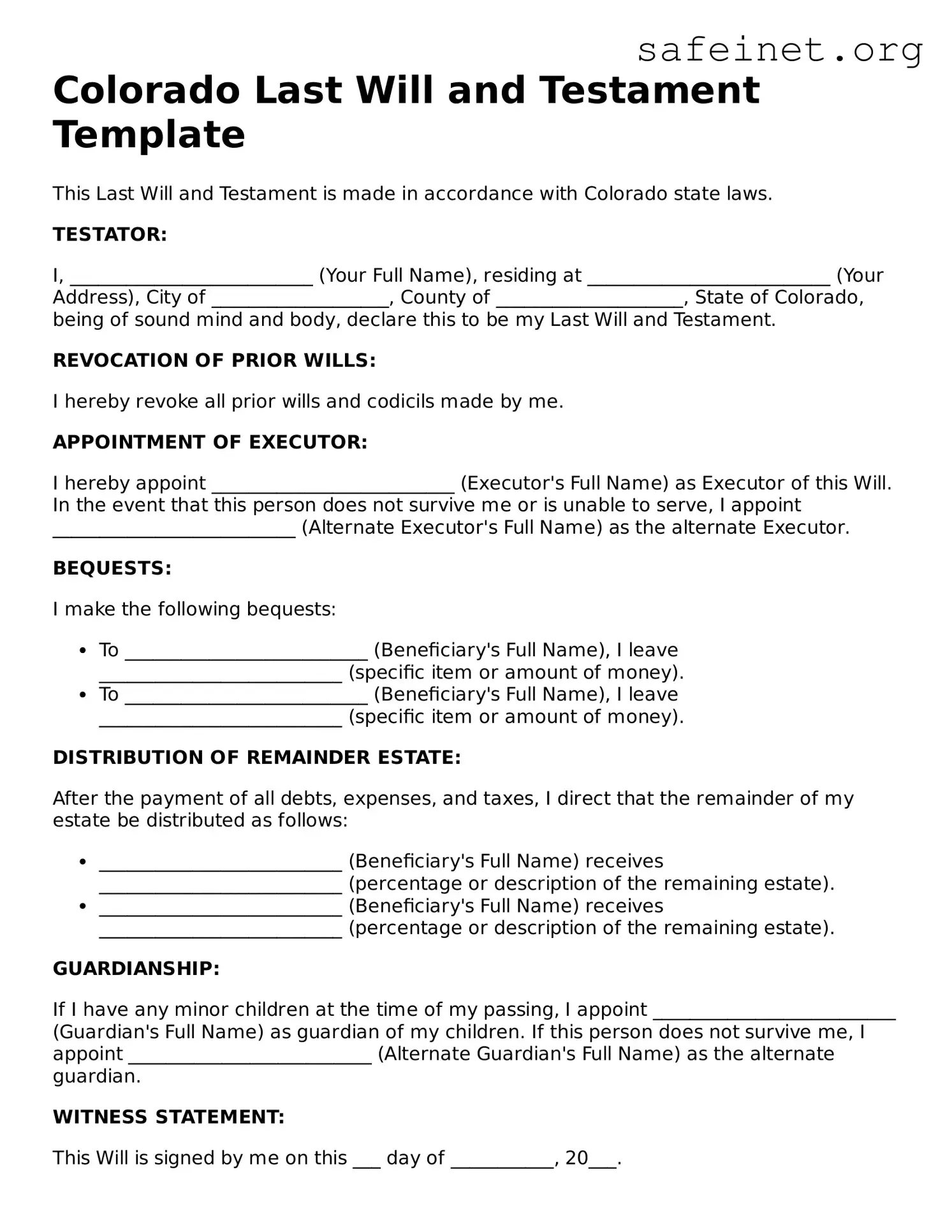Colorado Last Will and Testament Template
This Last Will and Testament is made in accordance with Colorado state laws.
TESTATOR:
I, __________________________ (Your Full Name), residing at __________________________ (Your Address), City of ___________________, County of ____________________, State of Colorado, being of sound mind and body, declare this to be my Last Will and Testament.
REVOCATION OF PRIOR WILLS:
I hereby revoke all prior wills and codicils made by me.
APPOINTMENT OF EXECUTOR:
I hereby appoint __________________________ (Executor's Full Name) as Executor of this Will. In the event that this person does not survive me or is unable to serve, I appoint __________________________ (Alternate Executor's Full Name) as the alternate Executor.
BEQUESTS:
I make the following bequests:
- To __________________________ (Beneficiary's Full Name), I leave __________________________ (specific item or amount of money).
- To __________________________ (Beneficiary's Full Name), I leave __________________________ (specific item or amount of money).
DISTRIBUTION OF REMAINDER ESTATE:
After the payment of all debts, expenses, and taxes, I direct that the remainder of my estate be distributed as follows:
- __________________________ (Beneficiary's Full Name) receives __________________________ (percentage or description of the remaining estate).
- __________________________ (Beneficiary's Full Name) receives __________________________ (percentage or description of the remaining estate).
GUARDIANSHIP:
If I have any minor children at the time of my passing, I appoint __________________________ (Guardian's Full Name) as guardian of my children. If this person does not survive me, I appoint __________________________ (Alternate Guardian's Full Name) as the alternate guardian.
WITNESS STATEMENT:
This Will is signed by me on this ___ day of ___________, 20___.
______________________________
(Your Signature)
We, the undersigned, witness the execution of this Last Will and Testament and affirm that the Testator is of sound mind and that this document was signed in our presence:
______________________________
(Witness #1 Signature)
______________________________
(Witness #1 Printed Name)
______________________________
(Witness #1 Address)
______________________________
(Witness #2 Signature)
______________________________
(Witness #2 Printed Name)
______________________________
(Witness #2 Address)
NOTARIZATION:
State of Colorado, County of ______________________.
Subscribed and sworn to before me this ___ day of ___________, 20___.
______________________________
(Notary Public Signature)
My Commission Expires: _______________
